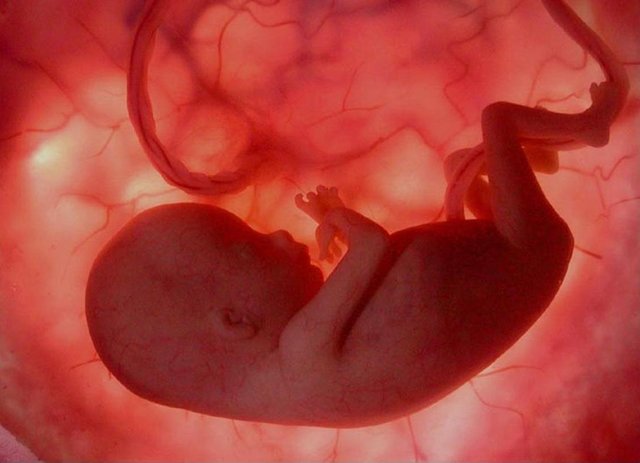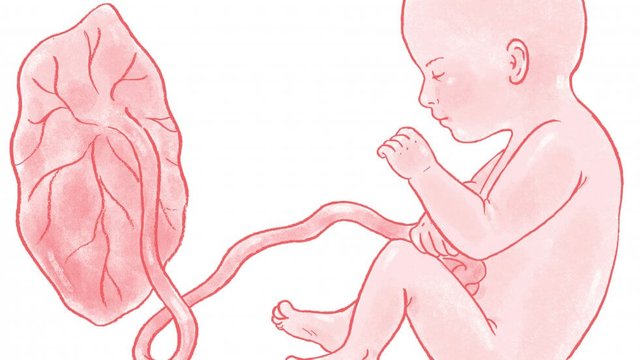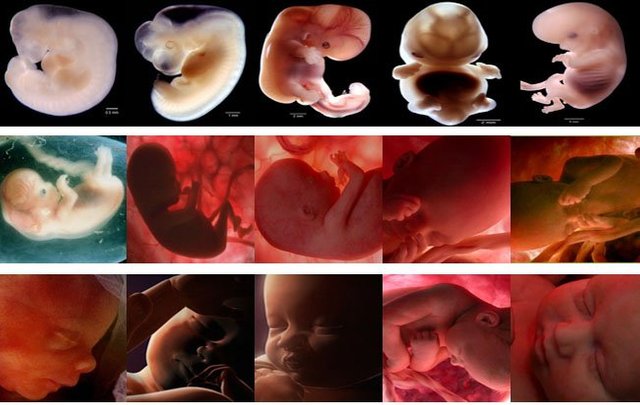Factors that modify fetal growth.

Source
There are several important variations between the length and weight of the fetuses, but sometimes these measures do not correspond to what the fetus should have depending on their age in weeks or months. Although this is generally due to genetic factors, environmental factors intervene, among others.
When the measurement of the fetus does not correspond to what is normal for his age, it is considered that he has suffered an intrauterine growth restriction (IUGR), among which would be classified as such, those whose weight is at least 10% below the expected weight at some determined gestation stage. It is estimated that approximately one in ten children has suffered from IUGR, which will have a greater risk of suffering from neurological deficiencies, congenital malformations, hypoglycemia, hypocalcemia and respiratory distress syndrome.

Source
Among the most common factors that can cause a intrauterine growth restriction, are:
• Maternal diet:
Undoubtedly the mother is the main source of oxygen and the essential principles for normal fetal growth, which is why the nutritional status of the mother has a great influence on the development of the fetus.
In addition to this, factors not so related to nutrition will also affect the weight at birth, such as maternal somatomedin, since, if it occurs in abnormal quantities, it will be associated with fetal weight. In addition, as it can influence a maternal vascular affectation, which would condition a decrease of the uteroplacental flow that causes between 25 and 30% of the cases of intrauterine growth restriction.
•Placental circulation:
Another of the most common causes of this condition is some problem with the functioning of the placenta, because it is responsible for transporting nutrients and oxygen necessary for the fetus, which is going to be determinant in the degree of fetal development. It will also function| as an endocrine organ and produce hormones, such as placental milk, growth factors, neuropeptides and cytokines.
• Heritage:
Inheritance or genetic factors will also be of great importance in terms of the development of the fetus, since these factors are responsible for approximately 15% of the variations in birth weight. Although in the process of growth and adult size are determined by the genetic characteristics of the parents, in the growth of the fetus, maternal genes will have a greater importance than the paternal ones.
•Environmental factors:
Environmental factors describe anomalies or pathologies that could affect the mother, such as nephropathies, heart disease, hypertension, alcoholism, drug use and urinary infections, which would have an impact on the fetus, causing problems such as genetic abnormalities, chromosomal or infections. It can even cause problems in the placenta, such as placental insufficiency.

Source
I hope you have learned something new today. If you liked or found it interesting, leave your upvote. Thank you
Congratulations! This post has been upvoted from the communal account, @minnowsupport, by danielvepa from the Minnow Support Project. It's a witness project run by aggroed, ausbitbank, teamsteem, theprophet0, someguy123, neoxian, followbtcnews, and netuoso. The goal is to help Steemit grow by supporting Minnows. Please find us at the Peace, Abundance, and Liberty Network (PALnet) Discord Channel. It's a completely public and open space to all members of the Steemit community who voluntarily choose to be there.
If you would like to delegate to the Minnow Support Project you can do so by clicking on the following links: 50SP, 100SP, 250SP, 500SP, 1000SP, 5000SP.
Be sure to leave at least 50SP undelegated on your account.
UPVOTE! https://steemit.com/news/@bible.com/6h36cq